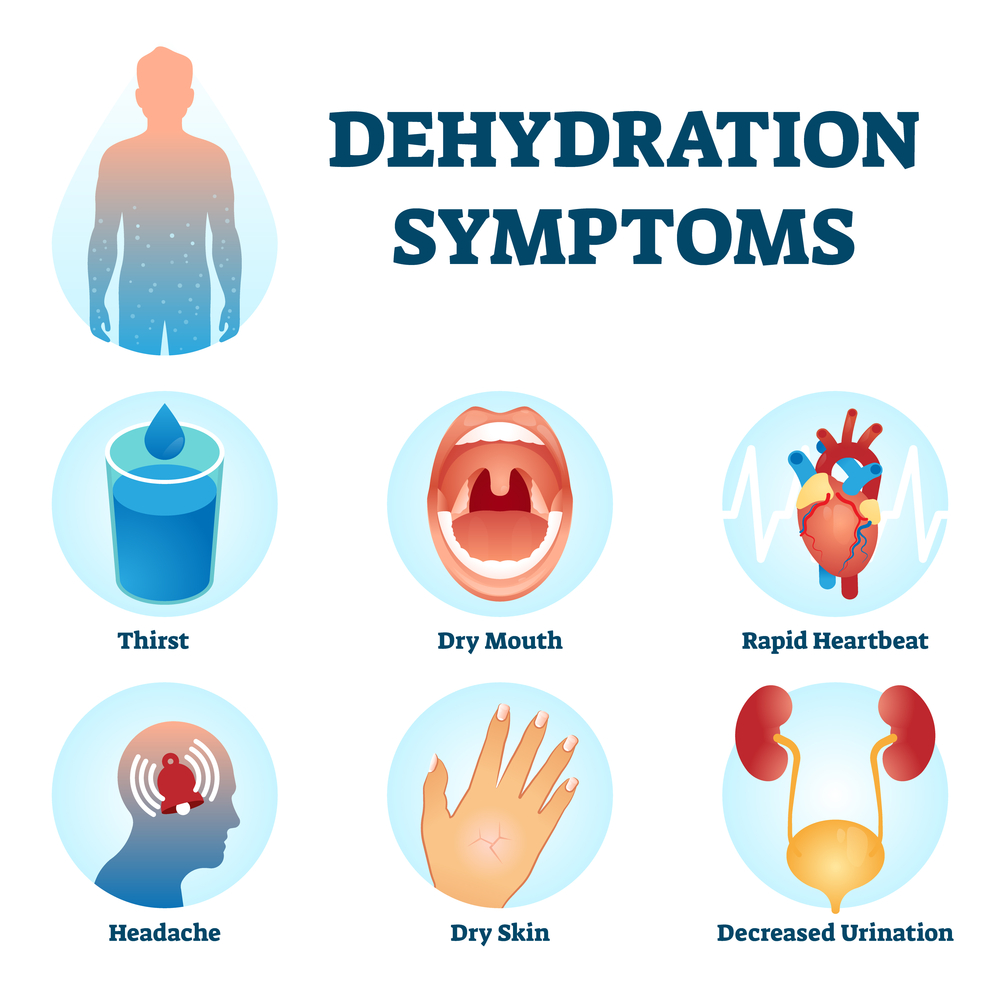
While the concern of dehydration is typically a summertime issue, the rest of the year poses risks as well. Especially now, during flu season. How can you know that you’re dehydrated? How does dehydration impact urological health? We are here to answer those questions and more.
Dehydration and Flu Season
Flu season usually spans the winter months. For those of us in the north, this means cold weather. We aren’t getting outside for exercise or sweating in the heat of the sun, so dehydration shouldn’t be an issue, right?
That would be nice! But it can still be a concern. Especially during flu season as the flu and other illnesses are often accompanied by fever, vomiting, and diarrhea. All of these things can quickly lead to dehydration. In addition, having a sore throat or upset stomach can make it uncomfortable to get the needed fluids.
Symptoms of Dehydration
Just like hunger pangs alert you that you’re hungry, thirst alerts you that you’re dehydrated. You are already dehydrated when you feel thirsty which means it is important to make it a habit to drink water long before you feel the need to. Fortunately, even mild to moderate cases can be remedied by increasing fluids in a timely manner.
Beyond regular thirst, here are some symptoms of dehydration:
- Extreme thirst
- Less urination
- Dark urine
- Dizziness
- Confusion
- Fatigue
Seek medical attention immediately if you are unable to keep fluids down, are irritable or disoriented, have extreme fatigue, or have bloody stool.
Dehydration and Urological Health
There are certain urological conditions that can be worsened by low fluid intake. Be vigilant to drink enough water as a daily habit, but especially if you suffer from one of these conditions:
Urinary Tract Infections (UTIs)
UTIs are very common. In fact, urologists treat millions of cases a year with women being the most common victims. When bacteria is in the urine and it is not flushed out adequately through hydration, the lining of the bladder and urethra become irritated, resulting in a UTI.
Kidney Stones
Healthy urination is essential to preventing kidney stones. Without it, your kidneys won’t be able to flush out the calcium, uric acid, and salts that could ultimate form into kidney stones. They can often be incredibly painful, cause blood in the urine, and sudden urges to urinate.
Bladder Syndrome
Inflammation of the bladder can lead to bladder syndrome, also known as interstitial cystitis. Dehydration could contribute to this problem because concentrated urine can irritate the lining of the bladder. As with both UTIs and kidney stones, the minerals and bacteria that doesn’t get flushed out because of low fluid intake can wreak havoc on your bladder.
Kidney Failure
The kidneys are a part of the metabolic system. Meanwhile, dehydration can slow the body’s metabolism. If metabolism begins to shut down, the kidneys begin to break down and could eventually shut down entirely.
Treatment
The most obvious treatment of dehydration is to drink water! But there is more. Here are some tips for dealing with dehydration:
- Sip clear fluids and drinks with electrolytes
- Suck on ice cubes
- Avoid all forms of caffeine and alcohol
If you are concerned that you may be suffering from one of the above conditions, contact the Urology Associates of South Bend right away! Meet with our knowledgeable and compassionate doctors and find the treatment you need to live your best life. Meanwhile, stay hydrated!